- Home
- Diana Palmer
After Midnight Page 11
After Midnight Read online
Page 11
“They never knew,” she assured him. “It was quick. At least be grateful for that small mercy, that they didn’t suffer.”
“He was my son,” he choked. “And what was left of him…God! God, I can’t…think…can’t bear to think of it…!”
She reached up and kissed his wet eyes, his face, gently comforting him while he relived the nightmare. Except that this time, he wasn’t alone. He didn’t have to face it by himself. His big arms pulled Nikki closer and for the first time in his life, he clung willingly to a woman for strength.
Nikki felt the moment when he came out of it, when his own will began to reassert itself.
His big hands contracted roughly on her shoulders. “I haven’t spoken of it to anyone. Not even to my friend Jake.”
“It’s good to talk about the things that hurt most,” she said quietly.
“So they say. So Chris says, constantly. She’s a psychologist, she psychoanalyzes me when we aren’t making love,” he said, angry at himself for pouring out his pain and angry at Nikki for being here, for listening. He felt her stiffen as he continued, “She’s very inventive in bed. She likes to get on top and…”
She jerked back out of his arms, savaged by the deliberate revelations as he’d known she would be.
“There’s no need for this,” she told him with cold pride. “I wanted to help, that’s all. I wasn’t asking for promises of forever or commitment.”
He glared at her. “You wouldn’t get them. Once was enough.”
“You won’t believe me, but I know exactly how that feels.”
“Yes, I remember,” he said with a mocking laugh. “He couldn’t, could he?”
Her face paled. She turned and got shakily back into bed, pulling the covers up.
He hated himself for the look on her face. She’d been trying to help, but he couldn’t accept his own vulnerability. He’d always thought he was invincible until Nikki came along.
“That was low,” he said heavily. “I’m sorry.”
She lifted her eyes but didn’t say a word.
He jammed his hands in his pockets. It disturbed him to see her in bed. “If you need anything, just sing out.”
“I’m fine,” she replied with involuntary formality. “Thank you for taking care of me.”
“Who else did you have?” he asked. He started out and then hesitated. “Where did you learn Morse?” he asked suddenly.
“I had a friend with a ham radio.”
He smiled. “You thought I’d know the code. Why?”
“You’re a sailor.”
Something changed slightly in his features. “Because I can drive a motorboat?” he asked.
She realized suddenly what she’d given away. A yachtsman could be expected to know Morse Code. But would an ordinary boater know it? Perhaps. Probably. She had to bluff.
“Well, you did, didn’t you?” she asked innocently. “I thought anybody who was around boats would have to know the code. I mean, what if you had a communications breakdown or something and a lot of static?”
The suspicion slowly faded. “I guess so,” he said, and laughed dryly at his own sudden stupidity.
He shook his head as he turned and left the room. Nikki stared at the closed door for a long time. He wasn’t the only one with unpleasant memories, and he’d brought some of her own back. She had to get well quickly and get out of here. Charleston seemed very far away, and there was Clayton to inform about her illness. She only hoped that he didn’t decide to telephone the beach house in her absence. Things could get very, very complicated if he did.
Chapter Eight
Cortez hated being stared at. In many big cities, he went unnoticed, but Charleston had a small town atmosphere and he looked alien with his dark bronze skin and long hair in its neat ponytail. Even the sunglasses he wore with his gray suit set him apart. The suit probably added to his uniqueness, he thought ruefully, he seemed to be the only person on the streets wearing one.
All the same, he was on the track of some interesting news for Clayton Seymour. It seemed that Kane Lombard had gone missing for a few days, and at the same time his plant manager had been out sick. It was during both absences that Burke’s had been contracted to replace CWC. But the really damning thing was that Lombard had been contacted about the replacement. He’d given his approval, two of his employees had said so when they were questioned about it by Cortez, who had telephoned a state official to ask the questions.
He’d followed up that visit with one to Burke’s, posing as a small businessman who might need to hire Burke. In the process he got an earful about Burke’s latest deal with Lombard.
“Cherokee, aren’t you?” his informant had asked. “I been up to Cherokee myself. Pretty impressive, seeing them chiefs stand out there in them pretty warbonnets. Must have had to kill a lot of eagles to get all them eagle feathers.”
Cortez had almost bitten through his tongue while he tried to smile nonchalantly. He wanted to tell the man that Eastern Cherokees never wore warbonnets except for the tourists, that warbonnets were limited to the Plains Indians. He wanted to add that the Cherokees had been a very civilized people who had their own newspaper in their own language in the 1820s and that their capital of New Echota was in no way dissimilar to a white town of the same period. He could also have told the man that killing eagles was an offense for which a man could go to prison these days.
But he didn’t. Over the years he’d learned that whites grouped Indians under one heading and stereotyped them, and that those old attitudes were as constant as the summer sun. It took more time than he was willing to spend to start spouting facts at a man who was already looking him over for a hidden tomahawk. It wasn’t the first time he’d had to cope with the situation.
Laden with information that he could use, he was having a quick sandwich and coffee in a small café, and getting a frank appraisal from a pair of pale blue eyes. He turned his head and stared back. Usually that was intimidation enough to stop a curious person. It didn’t stop this one. Her head tilted a little and the light caught her platinum-blond hair, making lights in it that held his attention. She couldn’t be much more than a teen, he thought. She was slight and not especially pretty except for that hair. She was wrapped up in a huge denim jacket, odd because it was a hot day. Dirt stained it in random smudges. He frowned slightly. She looked like the fastidious sort. His eyes dropped. She was wearing Western boots, but not pretty city ones. Those were hard-used boots, with caked mud and scratches. She gained points.
His black eyes lifted back to hers. She smiled almost apologetically, as if she realized that he didn’t want her attention, and went back to sipping her coffee.
His eyebrow jerked. She’d seen enough, had she? He laughed silently and finished his small meal, leaving a tip for the waitress before he went to the counter to pay his check. He had to find a local marsh. Burke’s idiot employee had let something slip that he shouldn’t have, and Cortez was going to take a quick look around the area. He’d have to buy a map and find out where to go.
He started to leave the café. On impulse, he walked to the young blond girl’s table and stood next to her, his sunglasses dangling from one lean, dark hand.
She looked up and grinned. “I know. I was staring. I’m sorry if I made you uncomfortable.”
Both eyebrows lifted. That was forthright enough. “Why were you staring?” he asked bluntly.
“You’re a Native American, aren’t you?” she asked, tilting her head a little more. He didn’t reply. “There’s something I’ve been dying to ask you, but I thought I’d already irritated you enough.”
“What?” he asked curtly.
She hesitated. “Do you have shovel-shaped incisors?”
He let out a loud breath and one corner of his thin mouth drew up. Now it made sense. The mud-caked boots, the dirt-stained clothing. She’d been on a dig. “Good God, an archaeology student,” he muttered.
“An anthropology major, doing my minor in archaeology,” she
corrected, and laughed. “How did you know?”
“You look as if you’ve been digging.”
“Indeed we have,” she said enthusiastically. “We found part of a Woodland period pot with charred acorns in it. My professor says that it’s over two thousand years old.”
“Along a river bottom, no doubt?”
She grinned. “Why, yes!”
“Find anything else?”
“No. It wasn’t a burial site, thank God,” she said heavily. “I wouldn’t like to dig up somebody’s great-grandfather. I think you get haunted for things like that.”
He smiled approvingly and checked his watch. He was running out of time. “To answer your original question, yes, like all Native Americans and Asians and other members of the Mongoloid classification, my incisors are shovel-shaped,” he said, surprising her. “Now,” he added, leaning down menacingly, “are you going to ask how many scalps I carry on my war lance?”
Her eyes twinkled. “Oh, that would be much too personal a question.” she said with mock somberness.
He couldn’t contain a chuckle. He turned and walked out of the café, shaking his head. If she’d been a little older, who knew what might have developed. As it was, he was a man on holiday doing a friend a favor. He had no time for cute college girls.
Armed with names and backgrounds, when he reached his hotel room he removed his laptop computer from its padded briefcase, hooked it into the modem, and plugged it in. He accessed the mainframe in Washington, D.C., at FBI headquarters with his password and called up the information he needed.
The unit was attached to a small printer. He printed out hard copy of the data and disengaged the modem. How interesting, he thought. Burke had a record. Not only had he violated EPD regulations, he’d actually been charged twice already. The witnesses had never shown up to testify and he’d gotten off. But this time, Burke and his brother-in-law had left a trail. Who better to follow it than me, Cortez reasoned dryly.
He changed into jeans and boots and a blue checked shirt and let his hair down. He was going tracking. If people wanted to stare, let them.
The rental car he was driving was nice without being flashy. He enjoyed driving. Back at his home he had a banged-up pickup with a straight shift. He thought of it longingly.
As he started out of the city, he deliberately drove back by the café where he’d had lunch. He hated himself for the weakness of this impulse. Sure enough, it had paid off.
There was the young blonde, standing beside a muddied old Bronco. Her face was red and her hair was askew. She was kicking the flat rear tire repeatedly while asking God to do some pretty strange things to her vehicle.
Cortez pulled in behind her and cut off the engine. She hadn’t even slowed down when he reached her.
“Flat tire, huh?” he asked, nodding. “I saw one of those once.”
She pushed back her tangled, windblown hair and looked up at him in disbelief. He looked so different with his hair down and wearing jeans that she didn’t even recognize him at first.
He took off his sunglasses. “You busy?” he asked.
She was catching her breath from the exertion. “Why? Are you going to offer to kick it—” she indicated the flat tire “—while I rest?”
“No. I thought you might come with me and help me track a truck.”
He caught her by the hand. Nice, he thought as he led her toward his car. She had good hands, strong and soft all at once. He opened the passenger door, but she hesitated.
With exaggerated patience, he pulled out his wallet and flipped it open, holding it under her eyes. He watched her expression change. That was another familiar sight. His credentials seemed to intimidate most people, who blurted out terrible secrets like unpaid parking tickets and promised immediate restitution.
“FBI,” she stammered. Her face paled. “You can’t be serious. You’re going to arrest me for assaulting a Bronco?”
“Unprovoked assault on a horse,” he agreed.
Her lower jaw fell.
He pursed his lips. “Okay. I’m deputizing you to assist me in an investigation. Better?”
“Me?”
“You.”
She shrugged. “All right, but I’m not shooting anybody.”
“Deal.” He put up his wallet and inserted her into the passenger seat. Minutes later, they were on the way out of town.
“I have to find a place called Pirate’s Marsh. Do you know it?”
As he’d guessed, she did. “Why, yes, it’s just a few miles down the road. Turn right at the next intersection.”
He grinned, glad that he’d followed his intuition. An archaeology student would know all the isolated spots. Or, most of them.
He followed her directions easily to a large area near the sea with huge live oaks dripping moss dotted around the shore. Two or three were uprooted.
“That’s from Hurricane Hugo,” she told him when they got out of the car and he stared at the felled giants. “Amazing how powerful wind can be.”
“Wind, rain, all of nature,” he murmured.
He started walking, his eyes on the ground. His little sojourn at Burke’s had given him a good look at the sort of tires the man used on his dilapidated vehicles. They had an odd tread that he’d memorized. Plaster casts would be better, but he could do that later. He had some plaster in the car, and a jug of water. All he had to do now was find something in this bog and a tire track that he could link to Burke.
It was a link that he needed for the chain of evidence. He wasn’t going to ignore blatant evidence of a federal infraction. It might not be his jurisdiction, but he knew a couple of the EPA boys. He’d had quite enough of white people polluting the earth with their industrial waste.
“What are you looking for?” she asked. “Maybe I could help.”
He glanced at her. “Tire tracks. Something nasty in the water.”
“Okay.” She started walking alongside him.
“Do you have a name?” he asked suddenly.
She looked up. “Of course I do,” she said, and kept walking.
His lips tugged up. “What is it?”
“Phoebe.”
He sighed audibly.
“Well, it is,” she muttered, glaring at him. “What’s wrong with being called Phoebe?”
“It’s unusual, that’s all.”
“What are you called?”
“Wouldn’t you like to know?” he challenged. He knelt and his eyes narrowed on a tire tread. Close, he thought, but not the right one. Not by a long shot.
“What are you called?” she persisted.
He got up, his eyes still on the ground. He pronounced a set of syllables with odd stops and a high tone. He glanced at her perplexed expression and smiled.
“It doesn’t translate very well,” he told her. “My mother saw a red-tailed hawk the morning I was born. If you translate it, it means something like ‘He who came on the wings of the red-tailed hawk.”’”
“That’s beautiful.”
“Sure.” He knelt again to examine a print. This one was right on the money. “Bingo,” he murmured to himself. He got up, ignoring the girl, and followed the tracks. When he came to a boggy place, he stopped and his keen eyes swept the expanse until he found what he was looking for: just the rusty edge of a barrel.
“Well, well,” he said to himself. “Some days it all comes together.”
“Did you find what you were looking for?” she asked, joining him.
“Yes. Thanks for your help.”
She grinned. “Do I get a badge now?”
He laughed out loud. “No.”
She sighed. “It was fun while it lasted.”
He reached out and caught a strand of her hair, fingering it gently. “Is it naturally this colour?”
“Yes. Both my parents are very dark. They say that I’m a throwback to a Norwegian ancestor.”
He let the hair go reluctantly. It was very soft, and he looked at her for a long moment, aware of some regrets. “Ho
w old are you?” he asked.
“Twenty-two. I was a late starter in college,” she confessed.
“Not that late.” His dark eyes slid over her body in the concealing thick coat and he wished that he had time to get to know her properly. “I’m almost thirty-six,” he said. “The name I use with whites is Cortez.”
She held out her hand. “It was nice to meet you.”
“Same here. Thanks for the help.”
Her fingers contracted briefly around his and he smiled down at her. “Two different worlds,” he remarked quietly. “And too much age difference, not to mention the kind of life I lead.”
“I was thinking the same thing,” she confessed shyly.
His fingers gently caressed hers. “Where do you go to school?”
“University of Tennessee at Knoxville,” she said. “But I’m off this summer, so I’ve been hanging around with some friends who study archaeology locally. I’m a senior at the university. I graduate next spring.”
“Then maybe I’ll see you at graduation, college girl,” he said unexpectedly.
Her expression was very still, and he dropped her hand.
“I’d stand out too much, wouldn’t I?” he asked curtly, turning on his heel.
“You bigot!” she exclaimed, picking up a small dead limb and heaving it at his back. “You take offense without any provocation whatsoever, you bristle before you even ask questions, you…you…!” She found another limb.
He moved suddenly with the kind of speed that usually caught people off guard because his normal movements were so calculatedly slow. He gripped her wrist before she could throw the limb. “Not nice,” he chided. “Don’t throw things.”
“It isn’t a thing, it’s a tree limb,” she pointed out, struggling against his strength. “Let go my wrist!”
“Not on your life.” He took the limb away effortlessly, but he didn’t release her arm.
She stared up into his eyes with resignation and faint excitement. He was very strong. “I would be honored if you came to my graduation, even if you came just as you are now,” she said curtly. “I have friends of all colors and cultures, and it doesn’t embarrass either me or my family to be seen with them!”

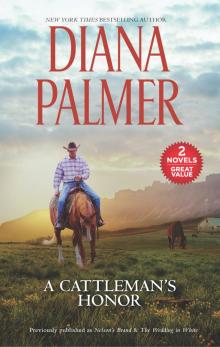 A Cattleman's Honor
A Cattleman's Honor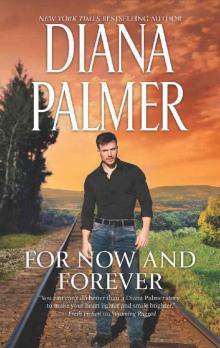 For Now and Forever
For Now and Forever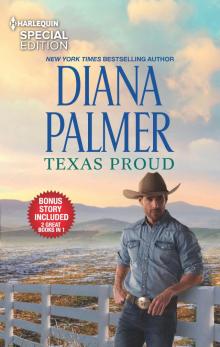 Texas Proud and Circle of Gold
Texas Proud and Circle of Gold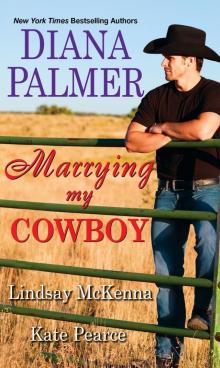 Marrying My Cowboy
Marrying My Cowboy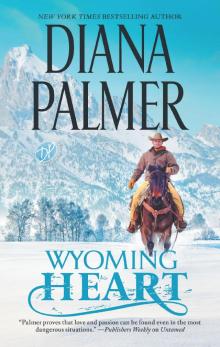 Wyoming Heart
Wyoming Heart Christmas Kisses with My Cowboy
Christmas Kisses with My Cowboy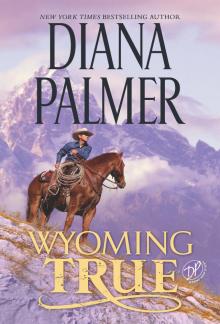 Wyoming True
Wyoming True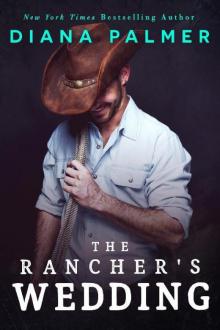 The Rancher's Wedding
The Rancher's Wedding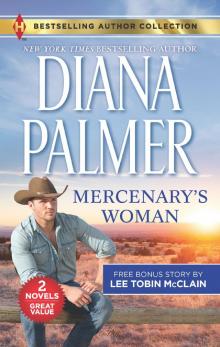 Mercenary's Woman ; Outlawed!
Mercenary's Woman ; Outlawed! Long, Tall Texans: Stanton ; Long, Tall Texans: Garon
Long, Tall Texans: Stanton ; Long, Tall Texans: Garon Lawless
Lawless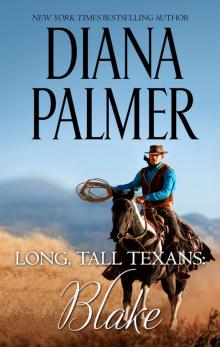 Blake
Blake Escapade
Escapade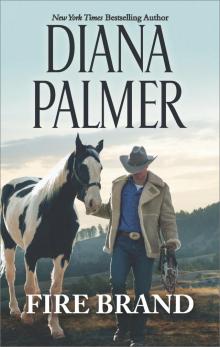 Fire Brand
Fire Brand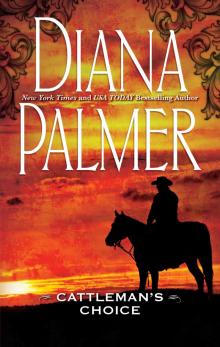 Cattleman's Choice
Cattleman's Choice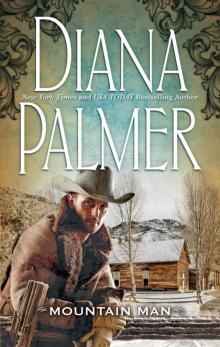 Mountain Man
Mountain Man Long, Tall and Tempted
Long, Tall and Tempted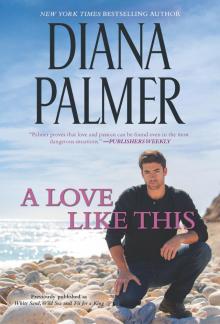 A Love Like This
A Love Like This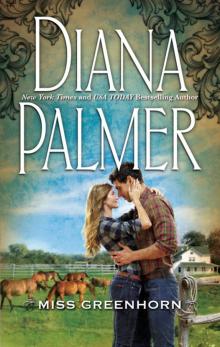 Miss Greenhorn
Miss Greenhorn Magnolia
Magnolia Lord of the Desert
Lord of the Desert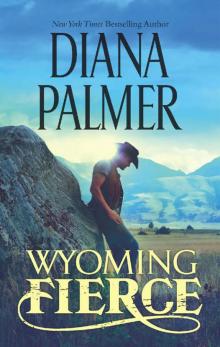 Wyoming Fierce
Wyoming Fierce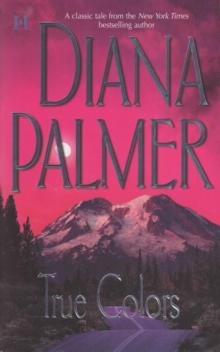 True Colors
True Colors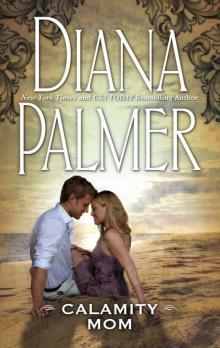 Calamity Mom
Calamity Mom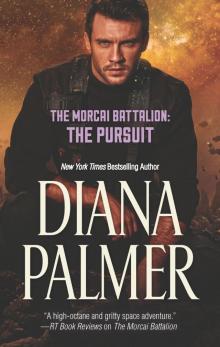 The Pursuit
The Pursuit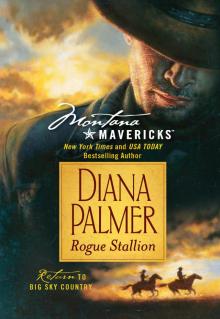 Rogue Stallion
Rogue Stallion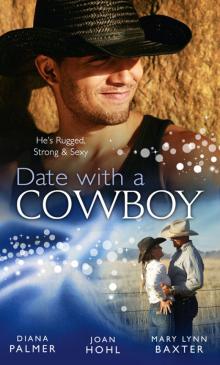 Date with a Cowboy
Date with a Cowboy Heart of Winter
Heart of Winter Friends and Lovers
Friends and Lovers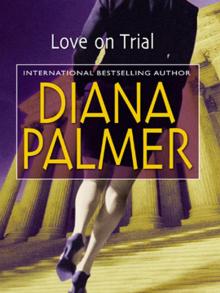 Love on Trial
Love on Trial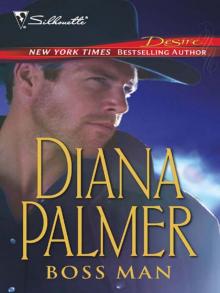 Boss Man
Boss Man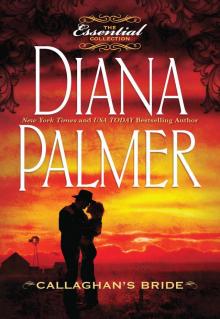 Callaghan's Bride
Callaghan's Bride Before Sunrise
Before Sunrise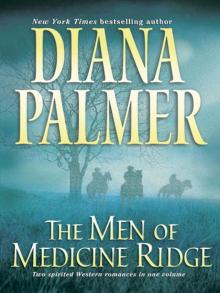 The Men of Medicine Ridge
The Men of Medicine Ridge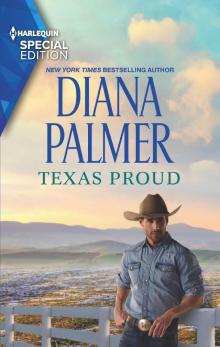 Texas Proud
Texas Proud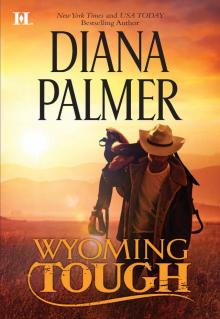 Wyoming Tough
Wyoming Tough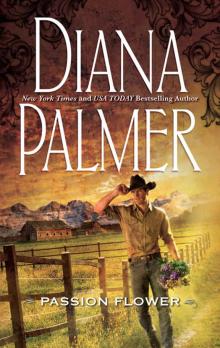 Passion Flower
Passion Flower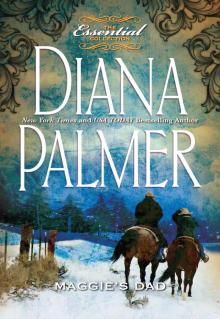 Maggie's Dad
Maggie's Dad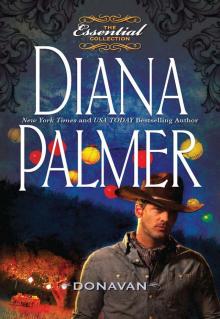 Donavan
Donavan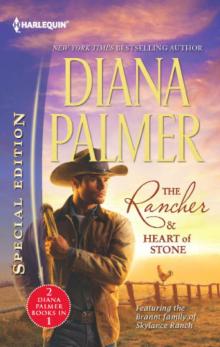 The Rancher & Heart of Stone
The Rancher & Heart of Stone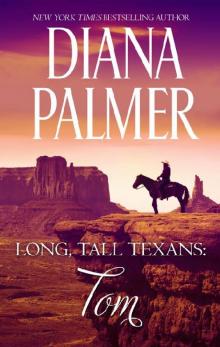 Long, Tall Texans: Tom
Long, Tall Texans: Tom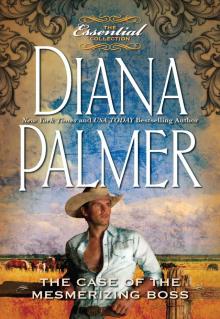 The Case of the Mesmerizing Boss
The Case of the Mesmerizing Boss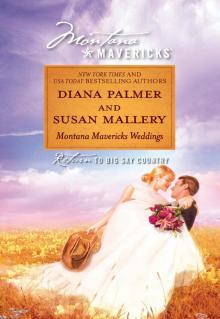 Montana Mavericks Weddings
Montana Mavericks Weddings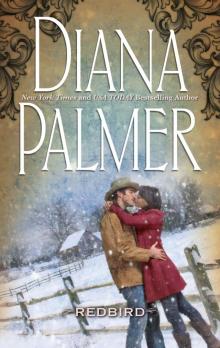 Redbird
Redbird Wyoming Strong
Wyoming Strong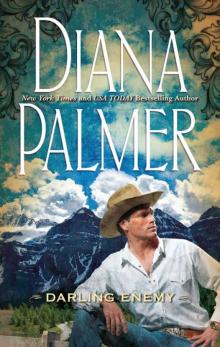 Darling Enemy
Darling Enemy Love by Proxy
Love by Proxy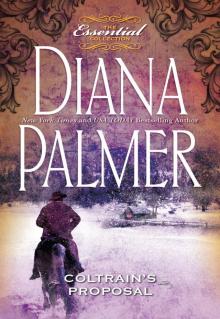 Coltrain's Proposal
Coltrain's Proposal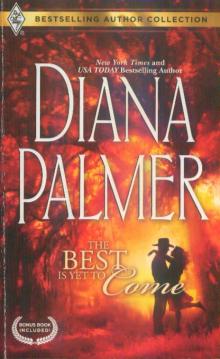 The Best Is Yet to Come & Maternity Bride
The Best Is Yet to Come & Maternity Bride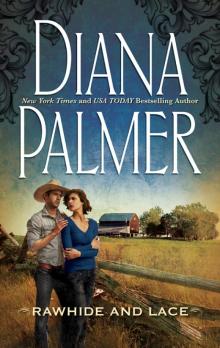 Rawhide and Lace
Rawhide and Lace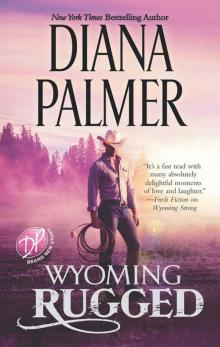 Wyoming Rugged
Wyoming Rugged Patient Nurse
Patient Nurse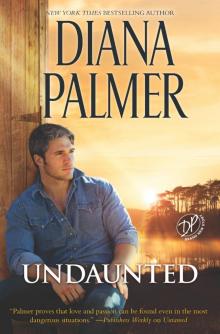 Undaunted
Undaunted Long Tall Texans Series Book 13 - Redbird
Long Tall Texans Series Book 13 - Redbird Outsider
Outsider Long, Tall Texans: Drew
Long, Tall Texans: Drew Long, Tall Texans--Christopher
Long, Tall Texans--Christopher Merciless
Merciless A Match Made Under the Mistletoe
A Match Made Under the Mistletoe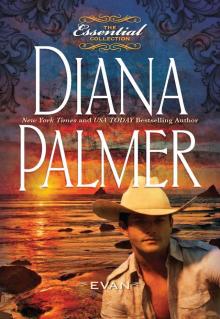 Evan
Evan Hunter
Hunter Now and Forever
Now and Forever Hard to Handle
Hard to Handle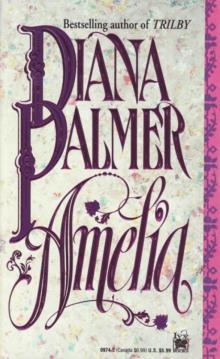 Amelia
Amelia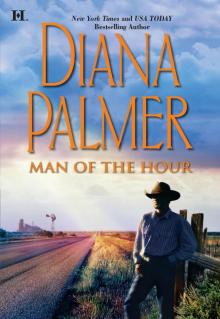 Man of the Hour
Man of the Hour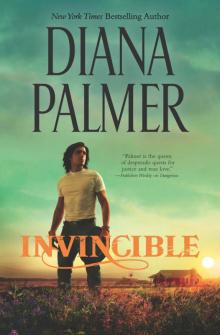 Invincible
Invincible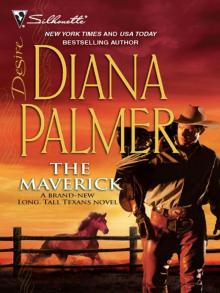 The Maverick
The Maverick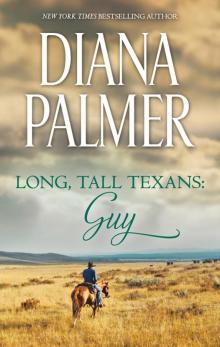 Long, Tall Texans--Guy
Long, Tall Texans--Guy Noelle
Noelle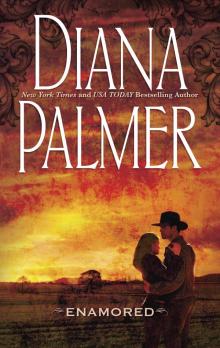 Enamored
Enamored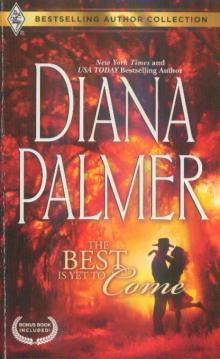 The Best Is Yet to Come
The Best Is Yet to Come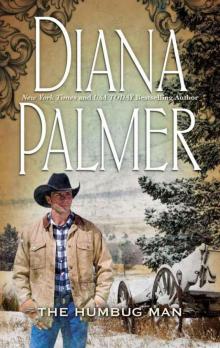 The Humbug Man
The Humbug Man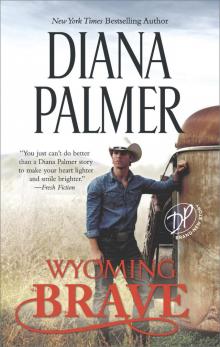 Wyoming Brave
Wyoming Brave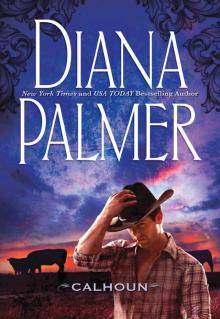 Calhoun
Calhoun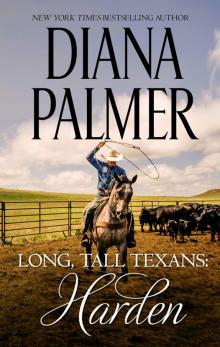 Long, Tall Texans--Harden
Long, Tall Texans--Harden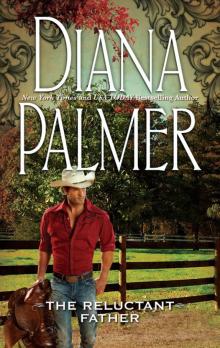 The Reluctant Father
The Reluctant Father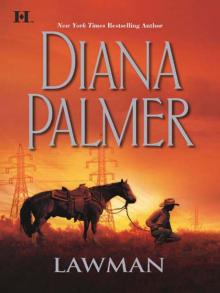 Lawman
Lawman Long, Tall Texans: Hank & Ultimate Cowboy ; Long, Tall Texans: Hank
Long, Tall Texans: Hank & Ultimate Cowboy ; Long, Tall Texans: Hank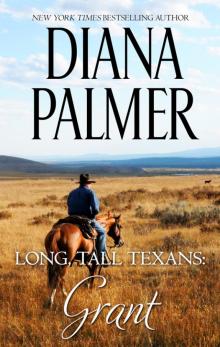 Grant
Grant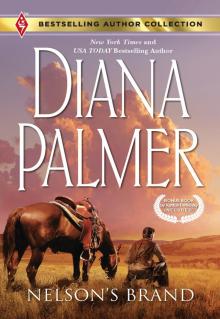 Nelson's Brand
Nelson's Brand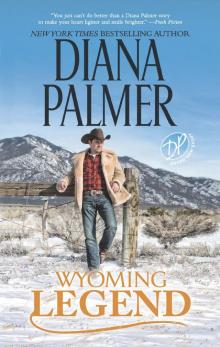 Wyoming Legend
Wyoming Legend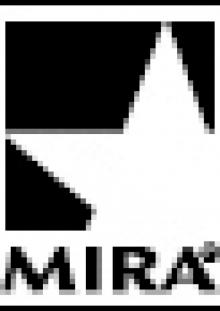 Diamond Spur
Diamond Spur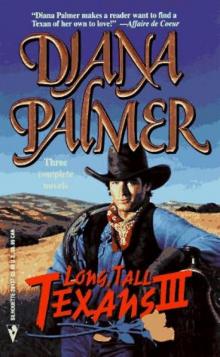 That Burke Man
That Burke Man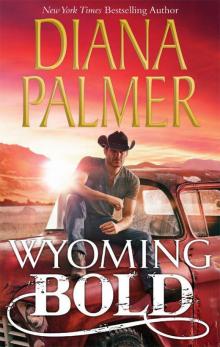 Wyoming Bold (Mills & Boon M&B)
Wyoming Bold (Mills & Boon M&B) Heartless
Heartless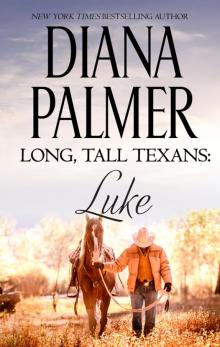 Long, Tall Texans--Luke
Long, Tall Texans--Luke To Have and to Hold
To Have and to Hold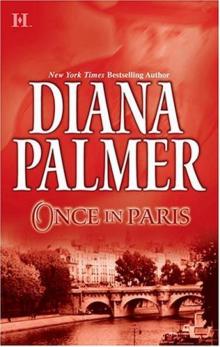 Once in Paris
Once in Paris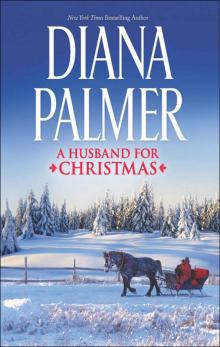 A Husband for Christmas: Snow KissesLionhearted
A Husband for Christmas: Snow KissesLionhearted Night Fever
Night Fever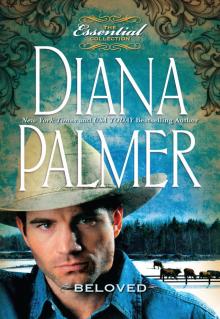 Beloved
Beloved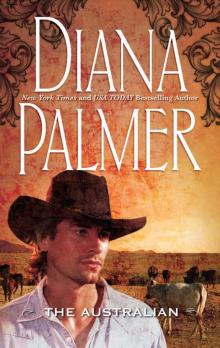 The Australian
The Australian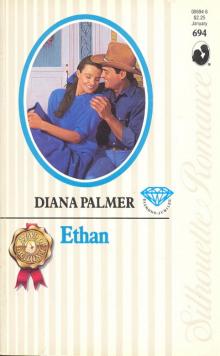 Ethan
Ethan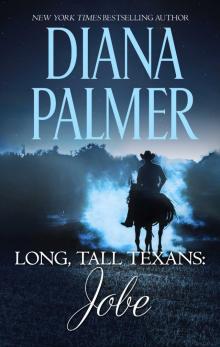 Long, Tall Texans: Jobe
Long, Tall Texans: Jobe Bound by Honor: Mercenary's WomanThe Winter Soldier
Bound by Honor: Mercenary's WomanThe Winter Soldier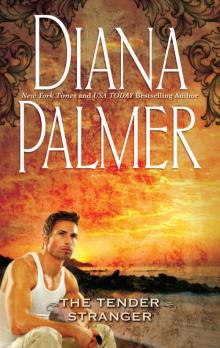 Tender Stranger
Tender Stranger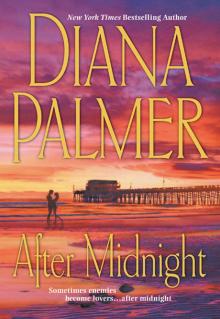 After Midnight
After Midnight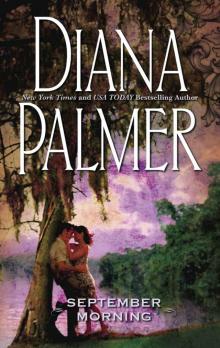 September Morning
September Morning To Wear His Ring
To Wear His Ring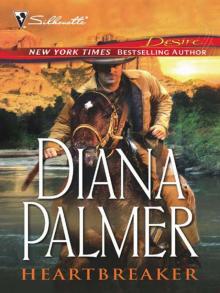 Heartbreaker
Heartbreaker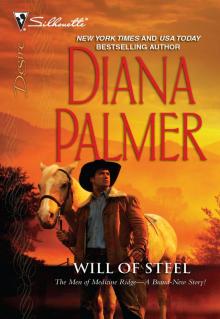 Will of Steel
Will of Steel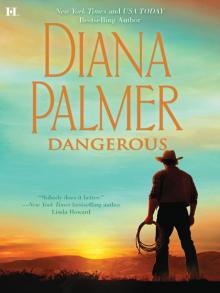 Dangerous
Dangerous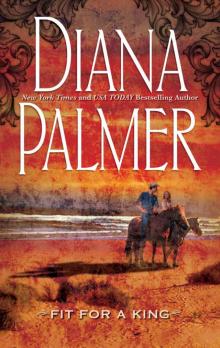 Fit for a King
Fit for a King Diamond in the Rough
Diamond in the Rough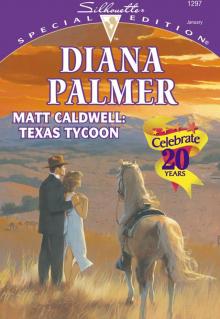 Matt Caldwell: Texas Tycoon
Matt Caldwell: Texas Tycoon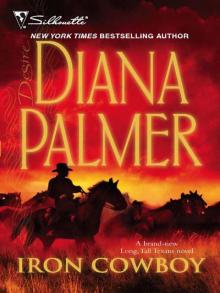 Iron Cowboy
Iron Cowboy Fire And Ice
Fire And Ice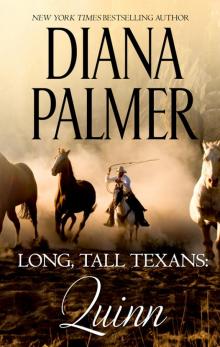 Long, Tall Texans--Quinn--A Single Dad Western Romance
Long, Tall Texans--Quinn--A Single Dad Western Romance Montana Mavericks, Books 1-4
Montana Mavericks, Books 1-4 Denim and Lace
Denim and Lace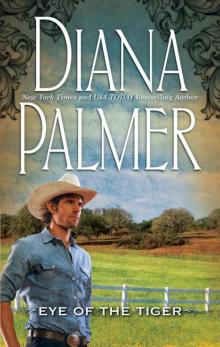 Eye of the Tiger
Eye of the Tiger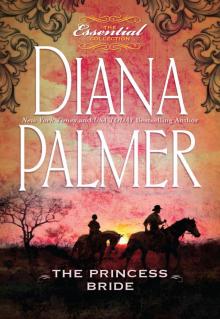 The Princess Bride
The Princess Bride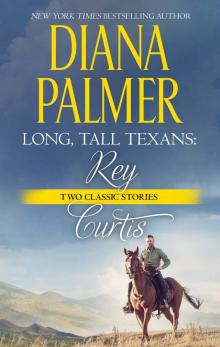 Long, Tall Texans: Rey ; Long, Tall Texans: Curtis ; A Man of Means ; Garden Cop
Long, Tall Texans: Rey ; Long, Tall Texans: Curtis ; A Man of Means ; Garden Cop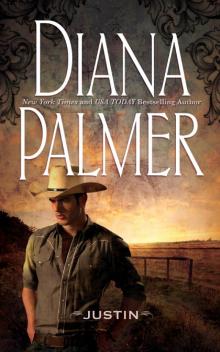 Justin
Justin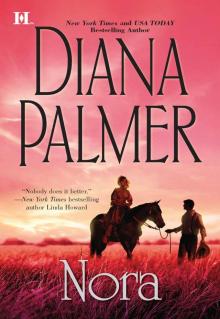 Nora
Nora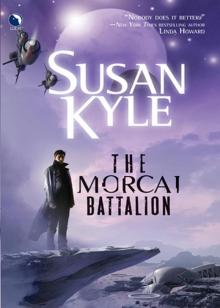 The Morcai Battalion
The Morcai Battalion Heart of Stone
Heart of Stone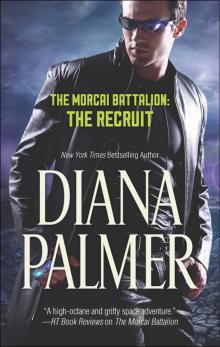 The Morcai Battalion: The Recruit
The Morcai Battalion: The Recruit To Love and Cherish
To Love and Cherish Invictus
Invictus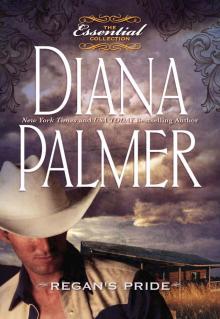 Regan's Pride
Regan's Pride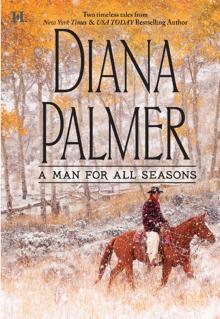 A Man for All Seasons
A Man for All Seasons Sweet Enemy
Sweet Enemy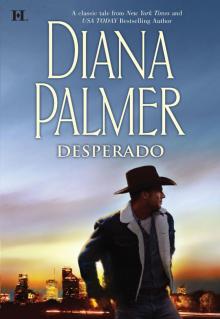 Desperado
Desperado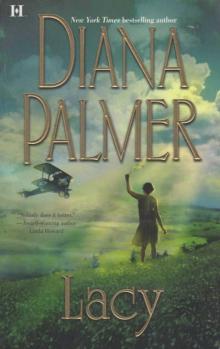 Lacy
Lacy The Winter Man
The Winter Man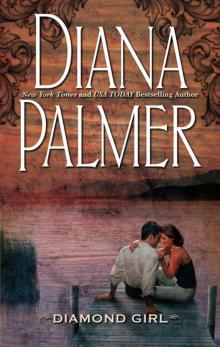 Diamond Girl
Diamond Girl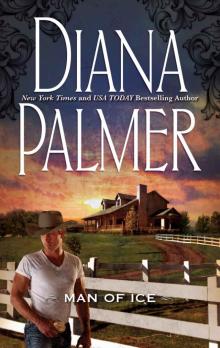 Man of Ice
Man of Ice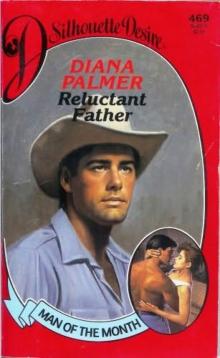 Reluctant Father
Reluctant Father Christmas with My Cowboy
Christmas with My Cowboy Love with a Long, Tall Texan
Love with a Long, Tall Texan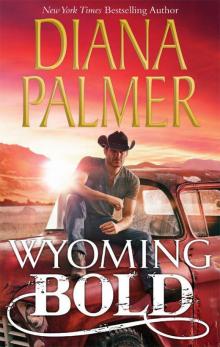 Wyoming Bold wm-3
Wyoming Bold wm-3 King's Ransom
King's Ransom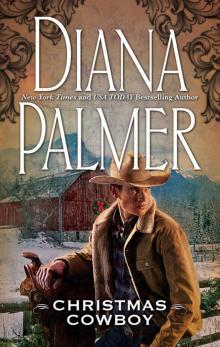 Christmas Cowboy
Christmas Cowboy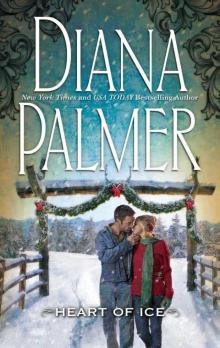 Heart of Ice
Heart of Ice Fearless
Fearless Long, Tall Texans_Hank
Long, Tall Texans_Hank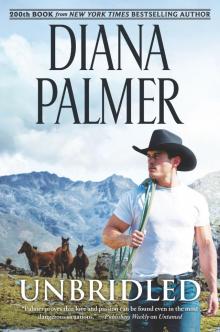 Unbridled
Unbridled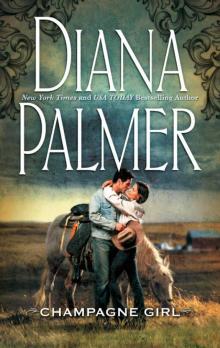 Champagne Girl
Champagne Girl The Greatest Gift
The Greatest Gift Storm Over the Lake
Storm Over the Lake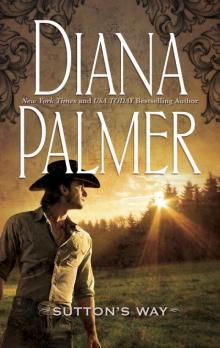 Sutton's Way
Sutton's Way Lionhearted
Lionhearted Renegade
Renegade Betrayed by Love
Betrayed by Love Dream's End
Dream's End All That Glitters
All That Glitters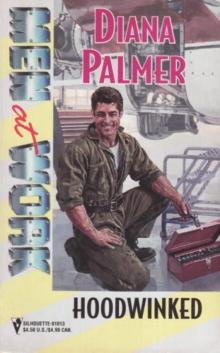 Hoodwinked
Hoodwinked Soldier of Fortune
Soldier of Fortune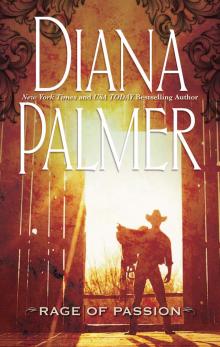 Rage of Passion
Rage of Passion Winter Roses
Winter Roses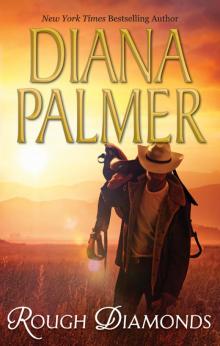 Rough Diamonds: Wyoming ToughDiamond in the Rough
Rough Diamonds: Wyoming ToughDiamond in the Rough Protector
Protector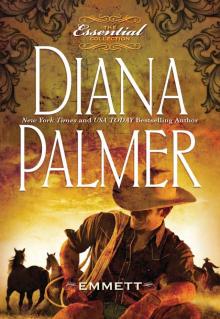 Emmett
Emmett True Blue
True Blue The Tender Stranger
The Tender Stranger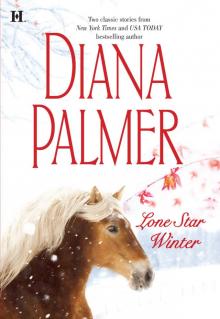 Lone Star Winter
Lone Star Winter Man in Control
Man in Control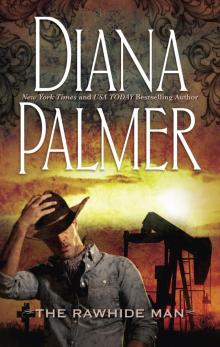 The Rawhide Man
The Rawhide Man Untamed
Untamed Midnight Rider
Midnight Rider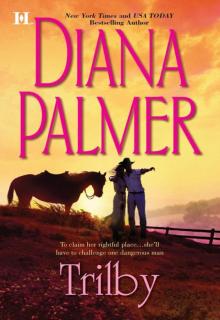 Trilby
Trilby A Long Tall Texan Summer
A Long Tall Texan Summer Tangled Destinies
Tangled Destinies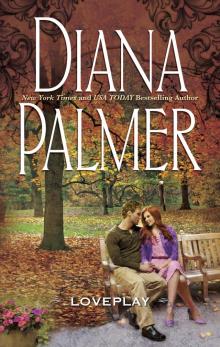 LovePlay
LovePlay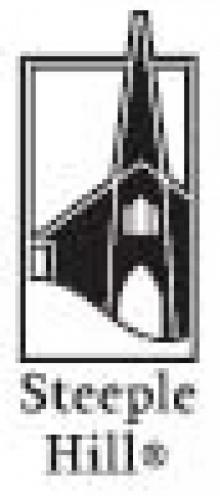 Blind Promises
Blind Promises Carrera's Bride
Carrera's Bride Calamity Mum
Calamity Mum Long, Tall Texan Legacy
Long, Tall Texan Legacy Bound by Honor
Bound by Honor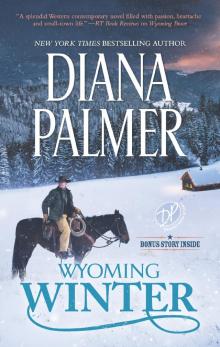 Wyoming Winter--A Small-Town Christmas Romance
Wyoming Winter--A Small-Town Christmas Romance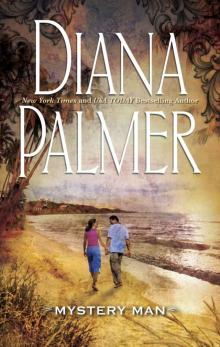 Mystery Man
Mystery Man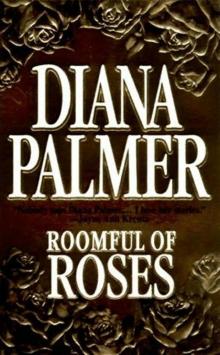 Roomful of Roses
Roomful of Roses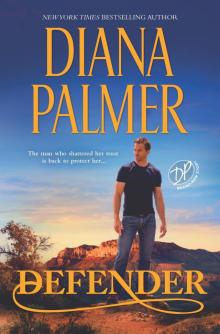 Defender
Defender Bound by a Promise
Bound by a Promise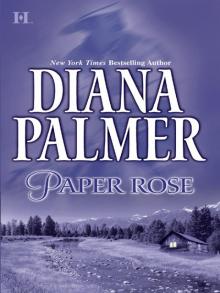 Paper Rose
Paper Rose If Winter Comes
If Winter Comes Circle of Gold
Circle of Gold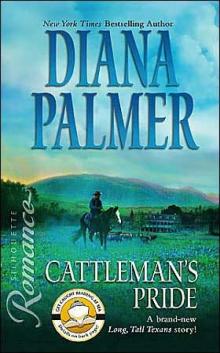 Cattleman's Pride
Cattleman's Pride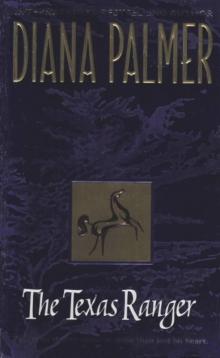 The Texas Ranger
The Texas Ranger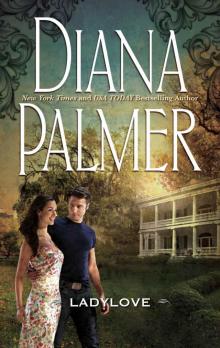 Lady Love
Lady Love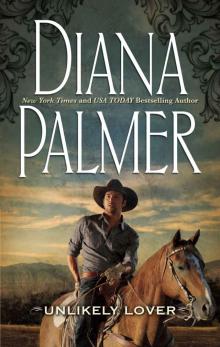 Unlikely Lover
Unlikely Lover A Man of Means
A Man of Means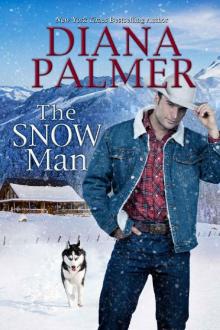 The Snow Man
The Snow Man The Case of the Missing Secretary
The Case of the Missing Secretary Harden
Harden Tough to Tame
Tough to Tame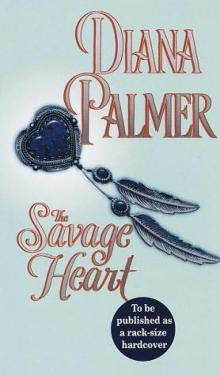 The Savage Heart
The Savage Heart